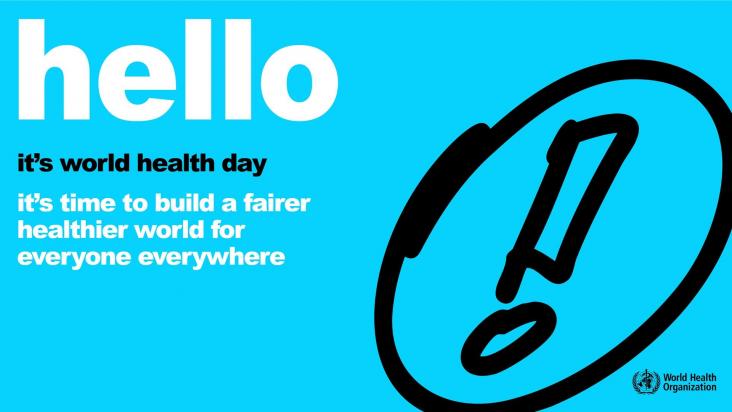This Comment article supports SDGs 3, 10, and 17 by highlighting the need for full inclusivity and representation, and the involvement of a diverse range of stakeholders and voices, in order to successfully design solutions to global health problems and to reform the systems that are exacerbating global health inequities.
Data-driven digital health technologies have the power to transform health care.
This study identified, for the first time, determinants of low Symphysis–Fundal Height (SFH) in the context of multiple infections, nutrient deficiencies, and inflammation in a marginalized community of pregnant indigenous women and recommends the use of low SFH as a screening tool in remote settings for the identification of high-risk pregnancies is a first step to improve maternal and fetal health

April 7th of each year marks the celebration of World Health Day. From its inception at the First Health Assembly in 1948 and since taking effect in 1950, the celebration has aimed to create awareness of a specific health theme to highlight a priority area of concern for the World Health Organization. To raise awareness of this year's theme - building a fairer, healthier world for everyone - Elsevier presents a curated list of free access journal articles and book chapters.
A Commentary on the Healthy People 2030 roadmap, in the context of SDGs 3 and 10, focusing specifically on the potential of this initiative in addressing upstream determinants of health to achieve health equity across the USA.
Background: The population of older adults (ie, those aged ≥55 years) in England is becoming increasingly ethnically diverse.
The Skinner case advances our understanding of the global history and distribution of Paget’s disease of bone (PDB) by studying a possible case in an indigenous pre-contact male from Canada.
Minorities and marginalized groups have increasingly become the target of discriminatory actions related to the COVID-19 pandemic.
Background: The objective of the current study is to investigate whether an area-level measure of racial sentiment derived from Twitter data is associated with state-level hate crimes and existing mea
